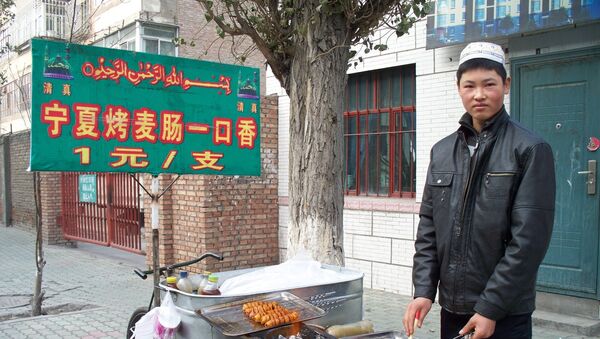Chinese Ningxia region has prohibited labels in the Arabic language on halal products, according to the Global Times.
READ MORE: Finnish Muslim Politician Claims Bullying Amid 'Halal' Debate
Residents from Wuzhong and Yinchuan confirmed to the newspaper that restaurants and food stores were required to replace the halal food labels that had Arabic inscriptions on them with new ones written in both Chinese and its official Romanization system — pinyin. Some supermarkets even had to remove the goods from the shelves until the label was replaced.
"Changing the new halal food label aims to rectify the halal food market and stop the pan-halal food tendency. The move is in accordance with China's laws and policies on religious freedom," Li Anping, former deputy secretary-general of the China Anti-Cult Association (CACA) said, as quoted by the Global Times.
Changing labels on halal food is not the only measure Ningxia has been taking in order to safeguard social stability and ethnic unity in the region.
In July 2017, the option of ordering halal food using the Chinese popular smartphone application Meituan prompted criticism from citizens, since, in order to convince customers to buy halal dishes, the company promised to pack such orders in separate packages and containers. Non-Muslims users regarded it as discrimination.
READ MORE: 'Not Halal Enough': Finland's Strict Slaughter Rules Roasted by Local Muslims
Halal is the food prepared in accordance with Islamic law enshrined in the Koran. Muslims are forbidden, in particular, to eat pork, as well as meat of other animals that have been butchered in violation of the traditions.



